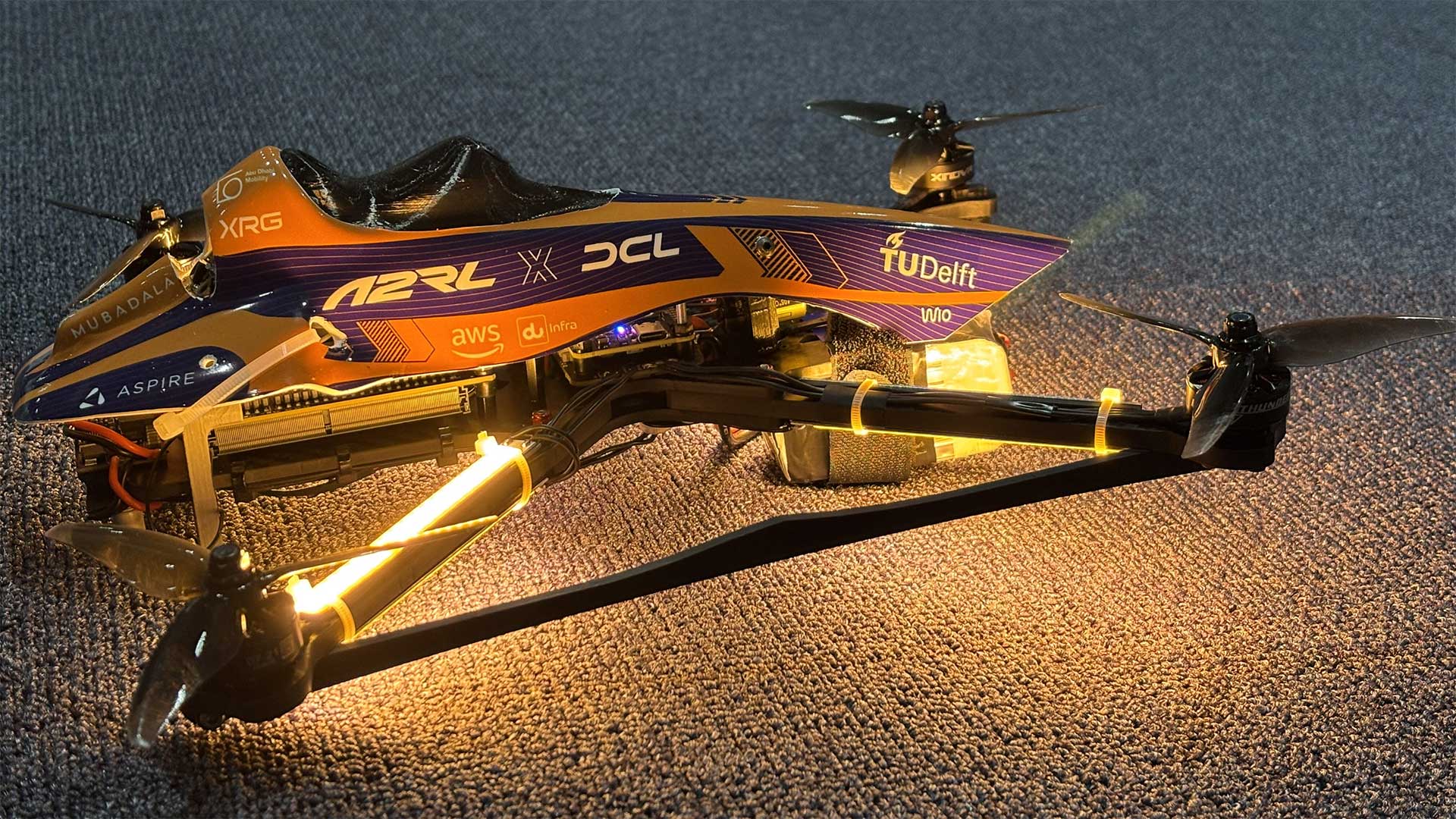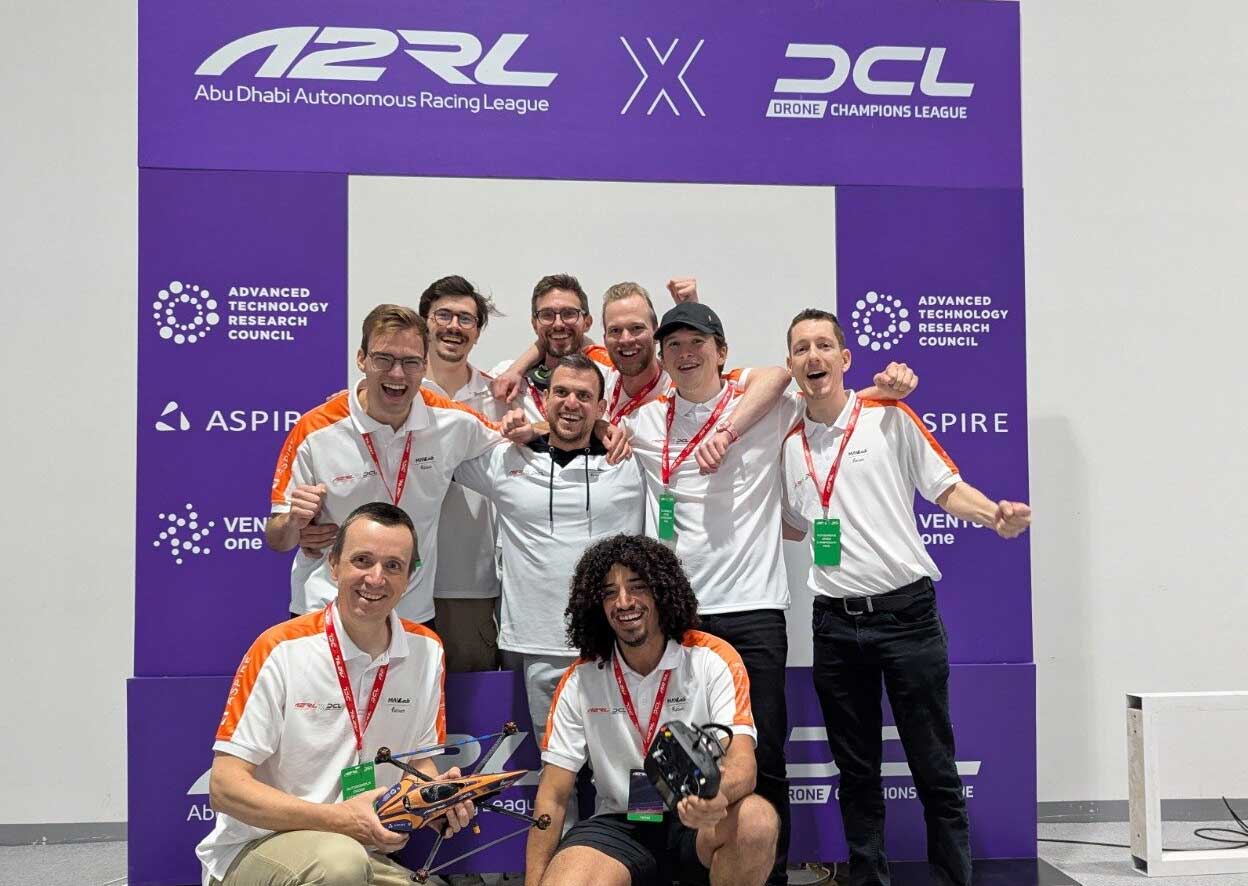AI drone beats human champions for the first time at Abu Dhabi racing event – new deep neural network sends control commands directly to motors in significant leap
Dutch team celebrates autonomous drone milestone.

A team of scientists from TU Delft in the Netherlands is celebrating a highly significant autonomous drone milestone. According to a university press release, “for the first time, a drone has beaten human pilots in an international drone racing competition.” This milestone for AI-controlled drones was passed at the recent A2RL Drone Championship 2025 in Abu Dhabi.
Situated in a large indoor space in the UAE capital, there were two prestigious drone racing events. The Falcon Cup Finals saw the best human pilots pit their skills against each other. Meanwhile, the A2RL Drone Championship was a showcase for the fastest AI-powered, autonomous drones. Perhaps most interestingly, a subsequent race dubbed the A2RL Grand Challenge allowed the best human pilots to face off against the best AI contenders. As per our headline, the TU Delft AI drone was the ultimate winner.
Central to the Dutch scientists’ drone racing win was a finely tuned AI “capable of split-second, high-performance control.” The A2RL took place on the very winding track, with drones reaching flight speeds up to 95.8 km/h, so there’s not a lot of room for suboptimal racing technique, let alone mistakes.
Readers must also understand that the autonomous racers were confined by several factors. Firstly, the drone only had access to a single on-device forward-facing camera and a single motion sensor, making the competition much fairer vs humans. The AI drone teams were also strictly time, computationally, and energy limited, notes the source.
Direct AI control of each drone motor
TU Delft shares what might be one of the most important advances behind its drone’s race success. The researchers say that a new element in this drone’s AI is “the use of a deep neural network that doesn’t send control commands to a traditional human controller, but directly to the motors.” This methodology yielded a very efficient AI model, which worked well with the limited on-board processing. It was suggested that, thanks to this technology, the Dutch racing drone could “more closely approach the physical limits of the system.”
The above milestone marks a great advance for the AI drone racing community. Obviously, there are implications to drone-based activity in the real world. Delivery drones could benefit from similar AI tuning, for example. However, wider implications for industries that will one day churn out millions of autonomous robots, self-driving cars, and so on are also clear.
Follow Tom's Hardware on Google News to get our up-to-date news, analysis, and reviews in your feeds. Make sure to click the Follow button.
Get Tom's Hardware's best news and in-depth reviews, straight to your inbox.

Mark Tyson is a news editor at Tom's Hardware. He enjoys covering the full breadth of PC tech; from business and semiconductor design to products approaching the edge of reason.

